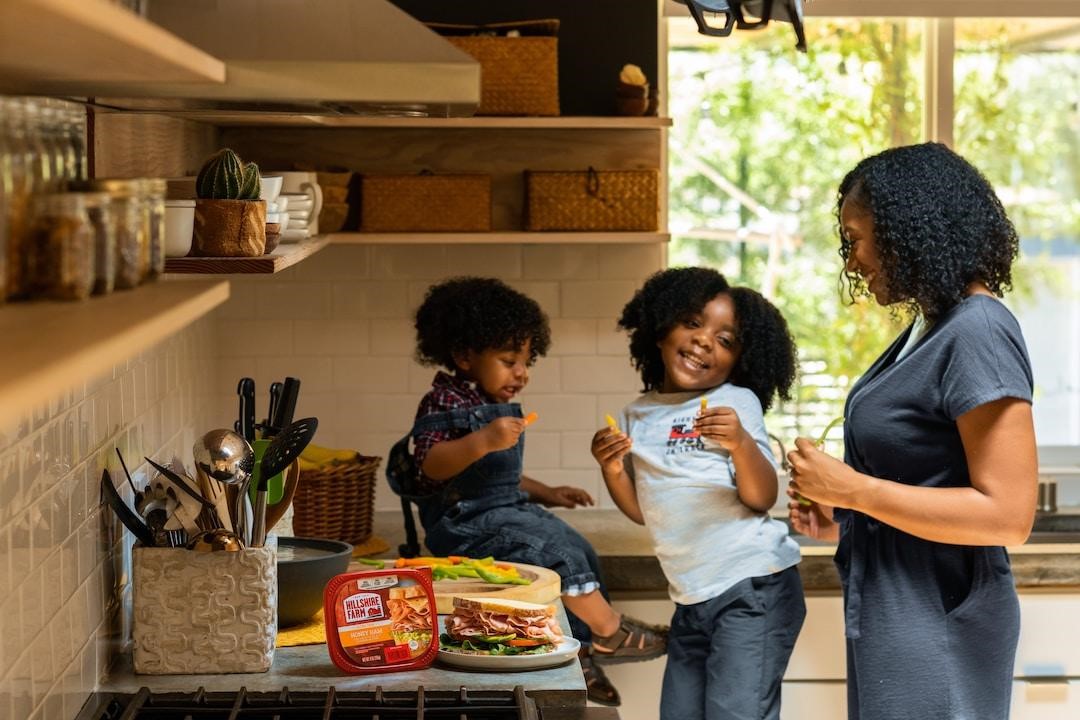20 Common Mistakes To Avoid When Divorcing With Children
By: Christy A. Zlatkus
When couples decide to part ways, the process of divorce can be a complicated and emotional endeavor. When children are involved, the stakes are even higher, and the potential for missteps becomes more pronounced. It's essential to prioritize the well-being and mental health of the kids during these trying times when divorcing with children.
At Z Family Law, we've been privileged to guide many families through this process in Maryland, ensuring their children’s best interests remain at the forefront. Today, we aim to spotlight some of the most common mistakes parents make during a divorce, in hopes of guiding you toward a smoother transition for your family.
1. Using Children as Pawns or Messengers
One of the most damaging mistakes parents can make is using their children as intermediaries or instruments of revenge. Asking children to carry messages between parents or making them a bargaining chip in disputes can inflict lasting emotional scars during a divorce with kids. It’s vital to keep adult conflicts between the adults, ensuring children remain neutral parties.
2. Badmouthing the Other Parent
While the emotional tension can run high during a divorce, it's paramount not to speak ill of the other parent in front of the children. Remember, regardless of personal feelings, that parent is still a significant figure in the child's life. Negative comments can create a confusing and distressing environment for children, making them feel as though they have to pick a side.
3. Failing To Establish a Co-Parenting Plan
Co-parenting requires cooperation, communication, and compromise. A mistake many divorcing parents make is not establishing a clear co-parenting plan early on. This plan should detail how the parents will communicate and each parent’s visitation schedules, financial responsibilities, and decision-making powers concerning the children's education, health, and other essential areas. By having a plan in place, it reduces conflicts and misunderstandings in the future.
4. Overlooking the Emotional Needs of the Children
Children are often the silent victims in a divorce. They experience a whirlwind of emotions—confusion, anger, sadness, guilt, and more. It's a mistake to believe that children are resilient enough to cope without support when divorcing with children. Parents should be attuned to their emotional needs, considering therapy or counseling, and ensuring open lines of communication where children feel safe expressing their feelings.
5. Forgetting the Financial Implications for the Child
Divorce doesn't just disrupt emotional bonds; it also has significant financial implications. It’s easy to get wrapped up in how assets are divided between spouses, but it's a mistake to overlook the long-term financial needs of the children. Consider their future needs, such as educational expenses, medical care, extracurricular activities, and more.
6. Assuming Court Battles Are the Only Option
Many divorcing couples assume that contentious court battles are inevitable, especially when children are involved. However, many disagreements can be settled through mediation, collaborative divorce processes, or direct negotiation between parties. Not only can these approaches save time and money during a divorce with kids, but they can also be less traumatic for children compared to drawn-out courtroom dramas.
7. Not Being Consistent with Routines
Children thrive on routine and consistency. One of the pitfalls divorcing parents often fall into is not maintaining a consistent routine for the children. This can include consistency in discipline, bedtime routines, meal times, and more. Especially in times of upheaval, such as divorce, the familiarity of routine can provide much-needed comfort and stability.
8. Disregarding the Input of Children
While children should never bear the weight of deciding the terms of a divorce, it's also a mistake to entirely disregard their feelings and input, especially if they're older. They may have valid concerns or preferences about living arrangements, schooling, or visitation. Taking the time to listen when divorcing with children can make them feel valued and heard.
9. Neglecting To Seek Professional Guidance
The tumultuous journey of divorce often blinds couples to the broader landscape of emotions and challenges they face, particularly where children are involved. Failing to seek professional guidance—be it legal advice, therapy, or counseling—is a mistake that can lead to unforeseen complications down the road. Attorneys can provide clarity on legal issues, while therapists can assist with emotional and psychological hurdles. Together, they can help parents navigate the divorce waters more adeptly, ensuring the children's interests are protected.
10. Overcompensating With Gifts
While it's natural to want to comfort your children during difficult times, it's a mistake to try and "buy" their happiness or loyalty with gifts. Overcompensating with material things can send the wrong message. Children of divorce might feel that love is conditional or based on material gain. It’s necessary to show love and support through presence, understanding, and emotional connection rather than through material means.
11. Ignoring the Dynamics of Extended Family
Extended family members play pivotal roles in a child's life. Grandparents, aunts, uncles, and cousins can offer additional support and love. However, a mistake many divorcing parents make is ignoring the dynamics of these relationships. Creating an environment where children can maintain these connections on both sides ensures they have a broader support network during and after the divorce.
12. Not Preparing for Difficult Questions
Children are innately curious and will undoubtedly have questions about the divorce. Avoiding these questions or offering vague answers can lead to more confusion and distress when divorcing with children. Instead, parents should prepare honest, age-appropriate responses to questions like, "Why are you getting divorced?" or "Is this my fault?" Being prepared fosters an environment of trust and open communication.
13. Underestimating the Transition Time
Many parents believe that once the divorce papers are signed, the family will adjust quickly. This is rarely the case. Underestimating the time it takes for children to transition and adapt to new living arrangements, routines, and family dynamics can lead to unrealistic expectations and further strain. This is particularly true if one or both parents are moving forward into new romantic relationships–your kids may not be ready to meet your S.O. for a significant time after the divorce. Recognizing and preparing for an adjustment period during a divorce with kids helps in providing the necessary support.
14. Not Reinforcing Love and Security
While this may seem obvious, it's easy to get caught up in the complexities of divorce and forget to consistently reinforce the idea that divorce isn't the child's fault, and both parents still love them. Assuming children of divorce understand this can lead to feelings of guilt or insecurity. Regularly expressing love and assuring children of their security in both households is essential.
15. Dismissing the Idea of Family Therapy
Family therapy isn't just for the parents. It's a constructive avenue for the entire family to address feelings, concerns, and anxieties about the divorce. Dismissing the idea of family therapy denies the family a helpful tool in navigating the emotional landscape of divorce together, ensuring everyone is heard and supported.
16. Inconsistent Communication With the Other Parent
Even if personal feelings are raw when divorcing with children, it's crucial for both parents to maintain consistent communication regarding the children. Whether it's about school events, medical issues, or emotional well-being, being on the same page helps in creating a stable environment for the children. Using tools like co-parenting apps or scheduled check-ins can facilitate smoother communication.
17. Not Considering the Child's Perspective in New Relationships
After a divorce, it's natural for parents to seek new relationships. However, introducing a new partner to your children too soon or without considering their feelings can be detrimental. It's essential to be sensitive to the child's perspective, ensuring they're comfortable and prepared for these introductions. A gradual approach that respects the child's emotions can lead to healthier family dynamics in the future.
18. Failing To Re-Evaluate Arrangements as Children Grow
What works for a five-year-old might not be suitable for a teenager. As children of divorce grow and their needs change, custody arrangements, visitation schedules, and other agreements may need re-evaluation. Failing to adjust based on the evolving needs of the child can lead to feelings of resentment or discomfort. Regular check-ins and evaluations ensure arrangements align with the child’s best interests at every stage of their development.
19. Ignoring Personal Self-Care
While the focus during a divorce is often on the children of divorce, parents shouldn’t neglect their well-being. Overlooking personal self-care can lead to burnout, stress, and emotional breakdowns, which can indirectly affect the children. Prioritizing self-care—whether it’s through therapy, hobbies, or time for relaxation—ensures parents are in the best mental and emotional state to support their children.
20. Avoiding Discussions about the Future
The future holds milestones like graduations, weddings, and more where both parents will likely be present. Avoiding discussions about how to handle these situations when divorcing with children can lead to tension and discomfort later on. It’s beneficial to have proactive conversations about potential future scenarios, ensuring children can enjoy their milestones without family tension overshadowing the celebrations.
Ensuring a Compassionate Path Forward
Divorce, with its myriad complexities and challenges, is never easy, especially when children are in the picture. However, with the right approach, empathy, and foresight, it’s possible to navigate this tumultuous period while ensuring the least amount of distress for your children.
At Z Family Law, our commitment is to guide families in Maryland and DC with compassion and understanding, making certain that the welfare of the children remains the paramount concern. Avoiding common mistakes can pave the way for a more peaceful transition, letting healing and growth take precedence in the next chapter of your family's life.
Ready for your new beginning? Schedule your initial case assessment today.

